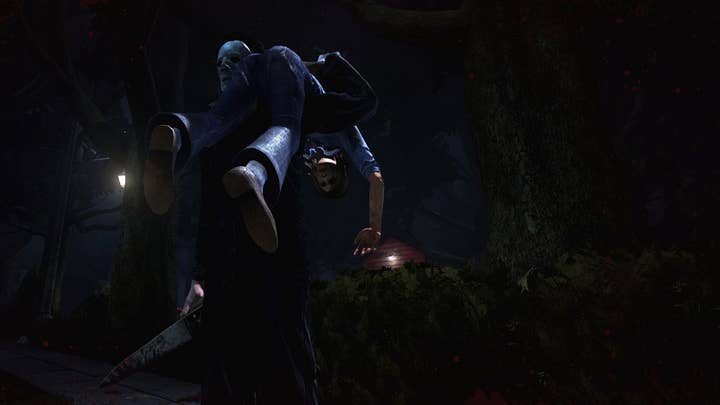Next-gen will be "tectonic plates" shifting underneath marketers
Behaviour's new chief marketer officer David Reid talks about how much the strategy of selling games has changed and the future of streaming
When David Reid was director of platform marketing for Microsoft leading up to the Xbox 360 launch, marketing games was a fairly straightforward process.
As he tellsGamesIndustry.biz: "In all of our marketing plans it was pretty clear that a certain percentage of your overall spend was going to be in retail, a certain percentage was going to be PR and print ads, a little bit of money for online advertising, and if you were a big console title, you got a TV spot. And that was pretty straightforward. It was not hard to execute."
In his newly announced role as chief marketing officer for Dead By Daylight outfit Behaviour Interactive, Reid said marketing plans in 2020 look very different than they used to.
"It's very clear that the next-generation consoles and beyond are big tectonic plates in the industry that are moving underneath us as marketers."
Reid says he doesn't see much spending on print or retail promotion any more. And in recent years, even spending on TV spots is something he says might be better allocated toward streamers, influencers, esports, or cultivating fans who will evangelize for the product.
"The business has evolved fairly quickly, and the scale of what it takes to be a successful title probably isn't super different," Reid says. "But the way in which you spend that money is far more distributed across a lot of channels than it was even five or ten years ago.
"It's gotten a lot more complicated to make a good marketing plan."
That's part of the reason why Behaviour hired Reid. While the studio has been around for 28 years, it has primarily been a work-for-hire outfit and didn't get into self-publishing until it bought the publishing rights for Dead By Daylight from Starbreeze two years ago. It's bringing the game to mobile platforms and also has aspirations to develop and self-publish more asymmetrical multiplayer titles, like the recently shuttered Deathgarden.

Marketing that slate of products will be Reid's job, and as would be expected, it's one that he is approaching very differently from when he was at Microsoft. For example, back then each person on his marketing team juggled obligations for three or four different titles at a time.
"Now it's completely different," Reid says. "Your marketing is deep in a brand in and of itself. Dead By Daylight is a business of enough size that it has a team of people that are dedicated to that.
"You have a lot more real-time metrics coming in, particularly on mobile, where you can see within hours if a particular marketing campaign is working or not"
"For the success the title has had, it's had a remarkably small amount of what people might consider traditional marketing. There hasn't been a big advertising spend on behalf of the title. We've gone to events, but we haven't taken the title around the world. We've never taken Dead By Daylight to some very big territories until this year, so there's room to grow on the marketing side there."
As the number of ways games marketers can spend their budget has proliferated in recent years, Reid says the ability to track the effectiveness of that money has increased apace.
"You have a lot more real-time metrics coming in, particularly on mobile, where you can see within hours if a particular marketing campaign is working or not, or what ad placement or ad unit is better than another," Reid says.
As for which metrics he values most, Reid says regardless of the project, the platform, or the business model, the one he values most is active gameplay.
"If you start with active gameplay, you'll largely be fine," Reid says. "You'll find out whether or not your product has an audience, and you'll find out where that audience is.
"From there, you get into a lot more discipline and detail about how to actually mechanically spend some of these budgets."
When the conversation turns to the future of marketing in games, Reid points to streaming, both in terms of people playing games for an audience online and companies like Microsoft and Google trying to launch Project xCloud and Stadia, respectively.
Reid says it was only five or ten years ago that marketers might have been "a little appalled" at the idea of spending money to get someone to play a game on their stream, but the industry has largely come around on that.
"As long as you're doing it with authenticity, people who like your game and resonate with your audience and are able to show your game in its proper fashion," Reid says.
"Consumers always devour content faster than we expect them to, and you can't retain people in a subscription service by only giving them front list content"
Moving to on-demand streaming and the rise of subscription services, Reid recalls his experience working for GameTap, Turner Broadcasting's defunct service that gave subscribers access to a regularly expanding selection of downloadable PC games.
"In that era, one of the things that was clear was that games as a subscription was not something most consumers were receptive to," Reid says. "This is a fairly new thing that's evolved."
While Netflix, Spotify and so many other services have shown consumers have more of an appetite for subscription services, Reid says that doesn't mean a "Netflix of games" idea is a slam dunk even if the technical challenges of on-demand game streaming are overcome.
"One of the differences is that the back catalog of games doesn't age as well as the back catalog of music and the back catalog of film," Reid says. "This is a lesson from Turner. Turner built a very good business around syndication of historical content. This is where TNT, TBS, Adult Swim, Cartoon Network came from. They all started with that idea and it seemed logical that games could follow that.
"The trick is that games made 20 years ago don't resonate with consumers today in the same way that films or music that was made 20 years ago do. The technologies under games have aged less gracefully than they do in film and TV.
"I am sure something is going to pop on this front, but the back catalog part of these subscription businesses is always an important part of keeping people engaged. Consumers always devour content faster than we expect them to, and you can't retain people in a subscription service by only giving them front list content. Making that back catalog work in games is a tricky challenge and it will fundamentally be part of the viability of these streaming businesses going forward."
It's not that Reid and Behaviour are particularly skeptical of subscription business models. After all, he says Dead By Daylight's inclusion in Xbox Game Pass has been really good business for the company. And when asked about concerns of such services becoming the primary discovery mechanism for players, Reid says he doesn't believe they'll close the door on other avenues.
"There's always going to be a reluctance by companies of major scale to bet too much on these innovations and it will always leave room for people at a smaller scale who are independent, who have a creative vision, to take something else out into the market," Reid says.
"And there will always be a major way to get that out there, even if the consoles and other major players in the industry consolidate around these subscription businesses. There's always going to be opportunity for new stuff to flourish.

